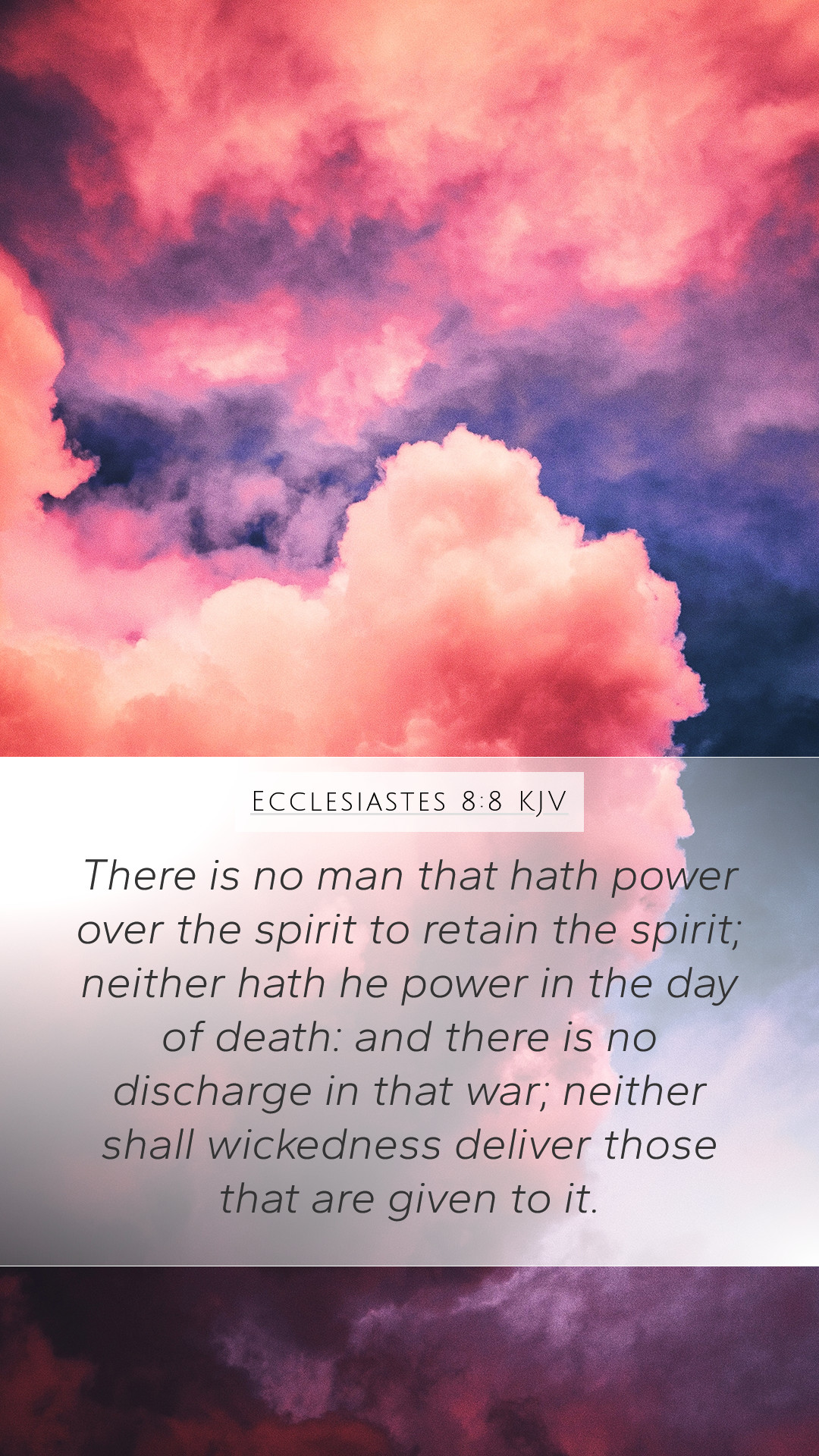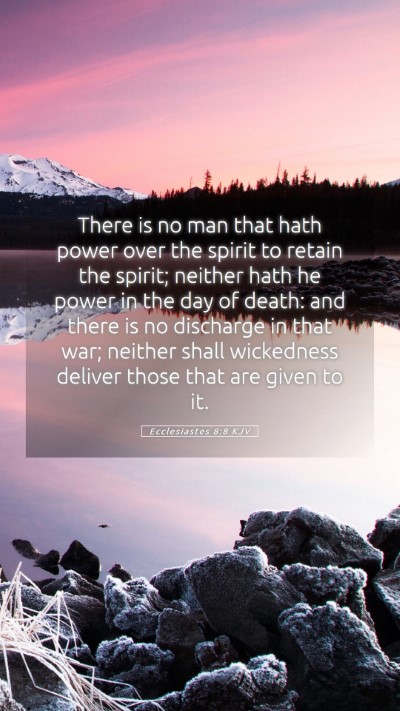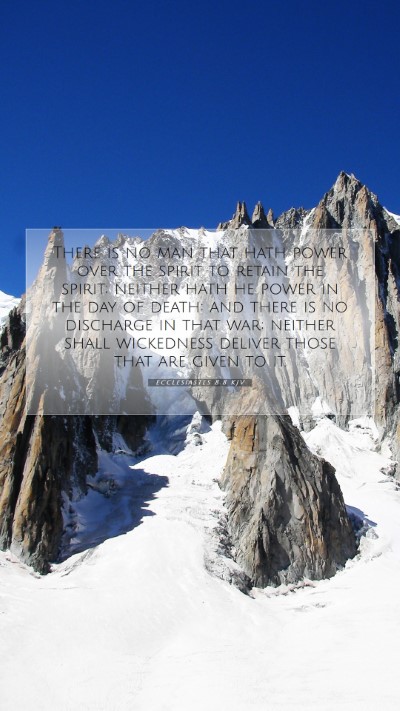Understanding Ecclesiastes 8:8
Bible Verse: Ecclesiastes 8:8
Verse Text: "There is no man that hath power over the spirit to retain the spirit; neither hath he power in the day of death: and there is no discharge in that war; neither shall wickedness deliver those that are given to it."
Meaning of Ecclesiastes 8:8
Ecclesiastes 8:8 explores the limitations of human power and control over life and death. The verse reflects on the inevitability of death and the futility of trying to escape it through wickedness or other means. This teaching is essential in understanding the transient nature of earthly existence and the sovereignty of God over human affairs.
Insights from Public Domain Commentaries
-
Matthew Henry:
Matthew Henry emphasizes the profound truth that no man can control the spirit or prolong life against God's ordained time. The “war” mentioned here refers to the struggle against death and moral decay, suggesting that no amount of earthly power can alter the inevitable and that all are subject to divine plan.
-
Albert Barnes:
Albert Barnes highlights the certainty of death and the limited human ability to affect outcomes. He describes how the "day of death" comes for all, emphasizing that it serves as a reminder of mortality. Barnes also suggests that wickedness will not provide solace or escape from the ultimate reality of death.
-
Adam Clarke:
Adam Clarke elaborates on the concept that it is futile to rely on wickedness as a means of achieving longevity or peace in death. He believes that every soul must ultimately face the reality of death, and it is prudent to live in accordance with divine laws rather than clinging to worldly desires for control over life events.
Summary of Insights
The central idea of Ecclesiastes 8:8, as discussed by these commentators, is the recognition of human limitations in the face of death and the control exerted by divine power. This realization encourages humility and reflection on one’s conduct and reliance on God, rather than sinful pursuits that lead to inevitable spiritual warfare without true victory.
Application of the Verse
Understanding Ecclesiastes 8:8 can aid individuals in various aspects of life.
- Reflect on Mortality: Regularly contemplating life’s brevity can lead to more purposeful living.
- Rely on God: Acknowledging divine sovereignty encourages deeper faith and trust in God’s plans.
- Avoid Wickedness: The verse warns against pursuing evil as a means of gaining power or influence.
Cross References
- Hebrews 9:27: "And as it is appointed unto men once to die, but after this the judgment."
- Psalm 39:4-5: "LORD, make me to know mine end, and the measure of my days, what it is; that I may know how frail I am."
- Job 14:5: "Seeing his days are determined, the number of his months are with thee, thou hast appointed his bounds that he cannot pass."
Conclusion
Ecclesiastes 8:8 serves as a profound reminder of the human condition in relation to divine authority. As we engage in Bible study insights and discussions within Bible study groups, let us consider how this verse encapsulates the very essence of life’s limitations and the necessity of relying on God throughout our spiritual journeys. The exploration of this verse can greatly enhance our Bible study resources and provide significant Bible study lessons that speak to the heart of the believer.


